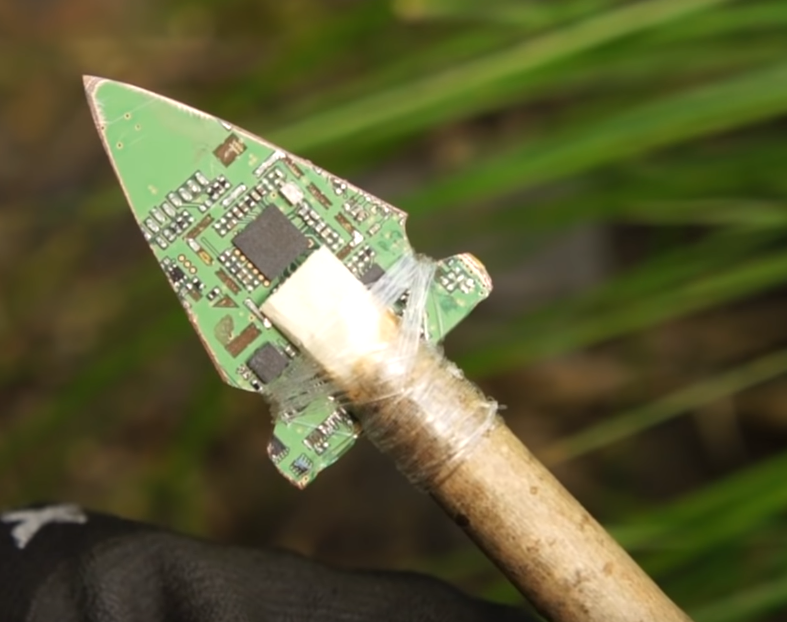I’ve recently been thinking a lot about self-destruction.
I’ve been thinking about how passion and destruction are interlinked. I’ve also thought that for creation to exist, destruction must proceed it.
I’ve had quite the difficulty to try and make sense of these feelings. I thought I’d try to explain and explore this idea with other people.
So here I am - Let’s start from the premise above.
You’re gonna have to start by pinning down terminology a bit.
Change is a term often used which I think most people would feel is a usefully distinct word for example if I said: said:
- “I created a sandcastle”
- “I changed a sandcastle”
- “I destroyed a sandcastle”
I think those would mean something different to most people despite all reductively applying to the literal rearrangement of a pile of sand.
So the obvious potential confusion here is in the case where I changed a sandcastle how would you decribe it? adding a turret could be taken as destroying the old one and creating a new one but it seems strange to me to argue for the throwing out of change as a concept since what I did seems meaningfully different from smashing a sandcastle, walking 100 meters, and building a new one.
So could you elaborate on what you take creation and destruction to entail?
So the obvious potential confusion here is in the case where I changed a sandcastle how would you decribe it?
I think all 3 are examples of destruction and creation. I think destruction often has a negative connotation. I think this is why we like to use the word “change” : to describe both destruction and creation at the same time.
- “I created a sandcastle” is actually “I destroyed the smooth beach to create a sandcastle”
- “I changed a sandcastle” is actually “I destroyed the sandcastle as it was to create a new one”
- “I destroyed a sandcastle” is actually “I destroyed the sandcastle to see the pile of sand that it was”
Destruction entails that what existed no longer does. Creation entails creating something that didn’t exist.
Ok so we can take that stance. I would disagree that these are useful semantics because of the case I mentioned where I feel like adding a turret to a sandcaste is something meaningfully distinct from reducing a sandcastle to a pile of sand, walking 100 meters down the beach, and making a new one with the turret.
Do you disagree that this is meaningfully distinct? If you do would you feel that it’s equivalent to do those two things? That you feel the same way about them?
If you agree that it’s meaningfully distinct then why insist on framing it in the same concepts instead of using the concept of change?
I would disagree that these are useful semantics because of the case I mentioned where I feel like adding a turret to a sandcaste is something meaningfully distinct from reducing a sandcastle to a pile of sand, walking 100 meters down the beach, and making a new one with the turret.
I guess to some level, this is the ship of Theseus problem. At what point is it still the same sandcastle?
I guess my theory of destruction assumes that for something so small - the addition of a turret seems to change the nature of the sandcastle. For example, in my mind, a sandcastle is simply an old medieval house for the aristocracy. If you add a turret, it no longer seems like a simple house - it gives new meaning to the castle.
If you agree that it’s meaningfully distinct then why insist on framing it in the same concepts instead of using the concept of change?
I think people certainly use it in distinctive ways but I think that framing it as destruction and creation makes people understand that to build something new, we must first abolish and deconstruct the old. I think the origin of my theory is harder to apply to a general context because of that.
For example, let’s say that we have a big friend group or some kind of self-governing body and we want to make it more diverse and inclusive. The first steps would be to deconstruct why the existing structure is pushing people away and once we’ve found why (say, people use slurs or regularly make “racist jokes”) then we have to destroy the ideas that made these behaviours socially acceptable. Only then can we build something anew.
I’ve thought about this, I’m afraid my take won’t be too deep, but that’s just the cycle.
You pull things apart or away from their natural state and destroy what their original properties were to create something with different properties. There’s no other way to make anything, creation is destruction, destruction is creation, and so the cycle will continue.
Even when. Your intent is purely destructive in nature you are creating something new, disordered and chaotic though it might be.
And it’s not just humans doing it, it’s happening all around you all the time, the universe breathes in this constant cycle of destruction and creation, no moment existing twice.
I think boils down to the limits of the term “destruction.”
If I “destroy” a sandwich, I’m saying something positive.
If I “destroy” someone’s country, I’m saying something negative.
This may seem somewhat trite but really and truly: it’s about how you define “destruction.”
This may seem somewhat trite but really and truly: it’s about how you define “destruction.”
Well, I did think of it more in an idea space rather than a physical space so there’s certainly a big difference in the application of destruction.
If we go with a more idea-based concept of destruction, destroying your own country is not necessarily a negative. Our countries and institutions are rarely perfect (and sometimes not good at all) so destroying them to create them anew or simply leaving their place empty can be good.
See, when I hear “destroy the country,” a part of me is all about burn to renew. But a part of me also knows that tens of millions of people could go homeless or even die in the interlude. The systems we have have a lot of dependent people. It’s easy to say “break a few eggs for an omelette” and all that but reality is far darker.
Creation and destruction is all just transformation though I guess. It takes some stuff and makes it into other stuff. Understanding a specific transformation as creation or destruction depends on your point of view. If the input that is lost is noteworthy then we’ll see the destruction. If the newly produced output is noteworthy then we’ll see the creation. It’s two sides of the same coin.
I don’t catch how you correlate destruction and passion though. Would you like to elaborate?
I don’t catch how you correlate destruction and passion though. Would you like to elaborate?
Passion often leads to creation (which I interlink to destruction). The way destruction can be seen can vary a lot. It can be self-destruction when passion carries people too far; it can be destruction because we need to destroy the old to create the new; it can be destruction and creation because we are misguided about the current state of existence (I think the NieR games can be a really interesting exploration of that).
Let’s follow that thought further. Why does passion lead to creation?
What is it about passion that demands an act?
What is “creation?” Is creation the act of bringing forth something that did not before exist, or does creation include creativity? Because if the former, you may be right, which is part of why we should devalue in our society the mysticism of creation and making and instead put some more focus on nurturing, care, and long-term maintenance. If the latter, I disagree. Creativity can be expressed through these acts of maintenance, nurturing, and care, all of which set at odds of destruction
Is creation the act of bringing forth something that did not before exist, or does creation include creativity?
Yes - it can include creativity as it can include evil.
Creativity can be expressed through these acts of maintenance, nurturing, and care, all of which set at odds of destruction.
Sure it can, that said - I don’t think maintenance, nurturing or care are at odds with destruction.
Maintenance can require the destruction of other ideas. For example, if you try to build a society built on love, is it wrong to destroy bigotry? That’s not to say that the people expressing these ideas need to be killed but rather that the idea of bigotry must be destroyed from their mind for tolerance to take its place.
Nurturing can be born out of destruction. For example, is Beehaw not born out of the destruction of other platforms? We try to nurture a different culture but I can hardly think it would exist without destruction happening in the first place.
Caring can bring people to destruction. For example, is it not care that makes us want to destroy authorities that harm our loved ones? Is it not care that makes us want to destroy the police system as it exists today?
I don’t think of it as “destruction” so much as “consumption.” And there’s no requirement that the magnitude of each side of the equation be anywhere close to symmetrical.
Buckets of paint are inherently less interesting than a beautiful mural on the wall. Unused bits in flash memory are less interesting than a digitized photograph taking up that storage space.
Basically, creation can be a big positive, on net, because the cost of that creation is often many orders of magnitude less than the value of the thing being created.
Moreover, even with a very generous definition of “destruction,” the comparison should still be made to what would’ve been destroyed anyway, in the absence of the hypothetical creation. When I take a bunch of tomatoes and other vegetables to make a pasta sauce, maybe I have fundamentally changed or even destroyed some plant matter to get there. But if I hadn’t made the sauce, what would’ve happened to those plants anyway? Would the tomatoes have just rotted on the vine? If I spend a day doing something, what did I destroy by letting that day go by?
In a sense, everything boils down to opportunity cost, rather than the framework of destruction. The universe is in a state of destruction all around us, with or without us. We have ways of redirecting that destruction, even in locally creative ways, but even in our absence the destruction would still happen.
That’s certainly an interesting perspective but I feel that it leans too much into quantifying destruction and creation based on the moral merit of these actions. It feels kinda like trying to justify rather than explain the relationship, I might be completely off base. What do you think?
I guess it’s a two-part observation. The first part does include a qualitative assessment of whether the destruction was “worth it.” The second part, though, I don’t think includes any moral assessment, just an observation that destruction is happening with or without us, so there’s plenty of creation that is possible from merely saving something from destruction, or leveraging an already-gonna-happen destruction to extract some creation out of it.
Neat idea and concept. I have a question about it.
When you upgrade something in a way that strictly adds to it (in a functional sense), is that still a destruction and creation? I suppose in some way you destroy the idea of what it was before the upgrade, and afterward you have created the upgrade state. Is this what is meant?
As a quick tangible example, if you have a computer with 2x 8GB RAM sticks and 4 RAM slots, then add an additional 2x 8GB, nothing physically was lost but you lost the empty slots that could have increased to a different amount with other RAM sticks, until you remove/replace the sticks. I’m not the best with philosophy so I’m using this example for my understanding. You can tell me if this is consistent with your premise.
Well, when we get into more technical bits and less big ideas or structures, I think the idea of destruction and creation can become a bit more absurdist sounding.
I think I’d say that adding the sticks of RAM does ‘destroy’ the computer as it was to make it have more RAM. It functionally no longer offers the same functionality (it can offer more).
And if we were to think about it in a software project sense (and this is getting a bit further from the hardware example) - adding a feature is an additive function but to accomplish that, you are sacrificing some of the simplicity that was there before the addition.
Does that make sense?
Yes, I get it. I included the example to confirm if that would be apply correctly and to assist my understanding.
I forget which book, but Nietzsche refers to this paradox as “the artist of violence”. The idea being that originally, things were created out of raw chaos; after that, you need to deconstruct something to create something new. Either way, it’s violence: the imposition of one’s will onto something else.
Now, Nietzsche said a lot of shit, so take this with a grain of salt; but this is one of the concepts that stick with me, for the same reason you’ve got this question bugging you. How do we balance our very human urge to create with an ethical imperative against violence?
I settled on not using violence that harms other humans, which is kind of extreme. But creativity thrives on constraints, right?
You have to answer the question yourself, though, of how far you’re willing to go, how much destruction you’re willing to cause, to create what’s important to you.
The idea being that originally, things were created out of raw chaos; after that, you need to deconstruct something to create something new. Either way, it’s violence: the imposition of one’s will onto something else.
I think this matches really well with what I’m getting at. I should read Nietzsche someday.
How do we balance our very human urge to create with an ethical imperative against violence?
Is violence necessarily evil? I understand aversion to it but there are plenty of improvements to society which people unfortunately had to use violence for and many of which I’d continue advocating for.
I read a fantastic book not maybe five years ago it so titled the creative destruction of medicine which touches quite well on how a lot of medicine has to fundamentally change and it’s happening through a lot of destruction. If you find the field of medicine interesting or want to know what the next few decades likely have in store, I’d recommend the book.
deleted by creator
i think it’s possible to create passionately without destruction. i have a passion for animation. i could spend a few hours to create a flipbook animation for fun - am i destroying the notebook i used in the process? am i destroying the pencil and eraser to create this? am i destroying the time i spent to do something i enjoy? do these sound like silly questions?
Well, if you spend stretches too long that can have a negative effect on you - such as we can see in crunch culture, it could be argued to be a form of self-destruction. I know that to many artists, they tend to push themselves too hard because of their passion, not necessarily because of company policy.
That said, it could also be said that the notebook you’re using will never virgin again so it could be said that you’ve destroyed the book.
I do think the idea of destruction and creation can become a bit more absurdist sounding when they are applied to very small scales, I’ll give you that 😛
deleted by creator
Consider basic physics too and the concept of entropy. Any act to order something takes energy. All physical things continually tend to disorder. So distruction in the physical sense is a natural process. It is creation and ordering that is miraculous. However that ordering has side effects in that it requires destruction of some other ordering.
Where passion comes in. Well a few ways. First in the end creation requires willing something into existence. Second blind passion can have undesirable side effects on you and the world around you.
My only point is that what your talking about has a basis in science as well and the fundamental laws of our universe.
Destruction is not required unless the new construct is directly contrasting to the existing. Even if it is contrasting, parralel construction can exist in many cases.









